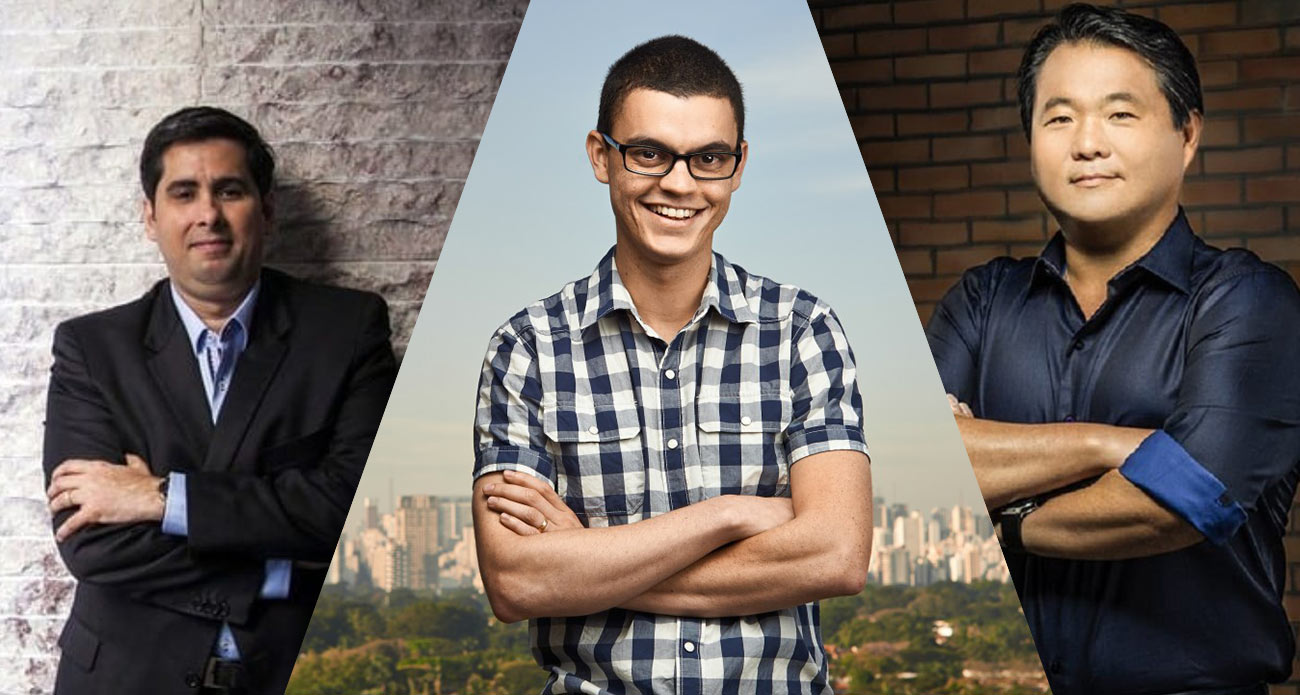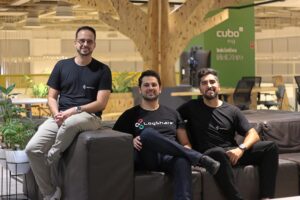
August 14, 2020
Contxto – When we see in other people our same passion to thrive, we watch them grow and it gives us that feeling of pride. They inspire us and they move us towards innovation.
You can learn something from every story. They are the shortcuts to success. Some stories we read leave us feeling insignificant. Others make us feel energized and excited.
The latter is the story I like the most.
This is why this is the first of a series that will bring Founders’ stories from all over Latin America to a single platform—Contxto. No matter where they’re from in the region, if you’ve got a Latin American Founder that inspires you, drop me a line and nominate them.
This time we’ll be starting with my home country of Brazil.
I have often come to regret the times I ignored a Founder’s story because they initially didn’t seem too promising. So, here are the stories of three brilliant entrepreneurs from Brazil that no one believed in at first and who have since inspired millions, including me.
Wise Up nowadays is the largest English Language School in South America. But they aren’t just the largest school; they have changed the market for good thanks to the hard-hitting vision of its Founder, Flávio.
I first came across him after listening to a Brazilian Podcast called “Jovem Nerd”. His rollercoaster of a journey saw him sell his company, only to re-buy it a few years later, increasing its value.
It all started with him working at a huge Language School as a salesman. He learned everything about sales and the business itself. Eventually, Flávio became the best in the company.
After working for a few years, he realized everything wrong with the current model. When his managers refused to listen to his ideas, he did the next best thing: He started from scratch.
Flávio risked going into debt with a super-high interest loan when he rented an office and hired personnel. However, he knew it was worth it because the goal was clear: To make the school profitable in the first year—a rare feat for any startup.
He sat in a chair in his new and empty office in Rio de Janeiro and started making phone calls. He trained his budding team to sell like him, mastering the craft of cold calling.
Within eight months, the school had 800 students and so Flávio went on to open a second school in São Paulo. Wise Up recruited over 3,000 students before reaching its second year.
After all this, Flavio finally thought he’d done enough for this business. This Founder then moved to the US with his family to accomplish a dream held by many entrepreneurs; that of selling his company.
He sold Wise Up for R$887 million (~US$320 million at the time).
Very impressive for a first-time entrepreneur.
When Flavio bought Orlando City —an American soccer team—, there were a bunch of people thinking he was out of his mind. But again, he just saw what nobody was looking at.
He did his research by just observing his son at soccer practice: It was extremely crowded. Always.
After conducting some research, he found out that the average audience at a professional game in the US was above the average of a professional game in Brazil; a country known for its passion for soccer. To Flavio, it was a unique opportunity to enter a potential market that no one else saw, apparently
One year later, Orlando City was playing in America’s Major League Soccer (MLS).
It was during his time in the US, that Flávio thought about turning his efforts to philanthropy.
This goal must have brought his mind back to education, because he ended up right back at the same company he had founded all those years ago.
He bought Wise Up again in 2015 for R$398 million (~US$130 million at the time) and after just three years, its valuation has risen to R$1 billion (~US$200 million).
He accomplished what every Founder needs to focus on when starting a business: The need to create value. You must create value for the people that buy your product/idea, for your employees, for society.
Flávio’s story tells us some important aspects in the creation of business: See, analyze, make decisions based on calculated risks with a value proposition. The money follows.
Marco Gomes started on his path to success in 2007. He was 20 years old and came from a poor neighborhood in Brasilia.
He was a young and exceptional guy. In one of his speeches, he shows an old photo to the audience and asks them: “Would you invest in this man?”
The question is a fair one. In the photo, he is wearing a tank top and is sporting dreadlocks. I couldn’t believe that this young man, in just four days, could have written the code for a program that would launch his career.
Thanks to this beautiful code, Marco overcame all the handicaps his looks might have imposed onto him when he presented it to VCs. With fire in his belly, he was able to boldly approach investors, door to door, until he finally reached that desired yes.
Monashees—also an investor of 99 and Peixe Urbano—went in with an investment of US$300,000.
Marco Gomes then quit his old job and moved to São Paulo to start his company.
In the beginning, he wanted to present an open-source code. It’s why he needed that Monashees money, to give him the runway to succeed, especially since his plans changed big time.
At first he thought Boo-Box would need three months to get its first client and six months to pay the bills. It took 18 months to get his first client and much longer until he could pay the bills.
After seven years of existence, Boo-Box has over 700,000 users and has reached 67,000.000 people through its platform.
Marco sold the company to a partner. For him, it was time to move on to other projects.
Marco Gomes started his career from humble beginnings, pursued his dreams, had an innovative idea and believed he could do it. So he did.
Before Robinson Shiba, the disk-pizza—a delivery service some pizza places had—was the only delivery service Brazil had at the time. That’s right. We didn’t have a service that delivered any other food. Just pizza.
After a trip to the United States in 1986, Robinson realized that there was a great demand for Chinese food, and they delivered it in paper boxes which got Robinson’s attention.
Upon returning to Brazil, with only a business model in his mind, Robinson started from scratch in a market that showed little interest in expanding.
After six years and after a few attempts with his brothers and friends, they created China in Box. The first dark kitchen—a delivery-only restaurant—Brazil had ever seen. All of this in a world without Ifood, Rappi or the internet.
But Robinson had a darker obstacle to overcome: Brazil’s prejudice against Asian cuisine.
His solution? To leave the kitchen on display for anyone to see. With the heart of the restaurant visible to the public nobody could ever say its hygiene was not perfect.
Today it has over 230 franchised stores in 22 Brazilian states and five restaurants in Mexico, reaching revenues of over US$57 million annually as of 2017.
We all want to succeed. Whether it’s our careers, our hobbies, or our love lives. But, how we succeed is another matter.
Indeed, there are a few points of this article that I think deserve to be highlighted. These are often seen as stumbling points for success, but which weren’t for these Founders.
None of these entrepreneurs:
It’s frequent to see an enterprising friend on the verge of giving up. What sets them apart from the rest is their willingness to persist.
Remember, when you read these stories, that the world needs the gift that only you can give.
-DR

March 28, 2025

Por Contxto
June 17, 2024
Por Contxto
June 17, 2024